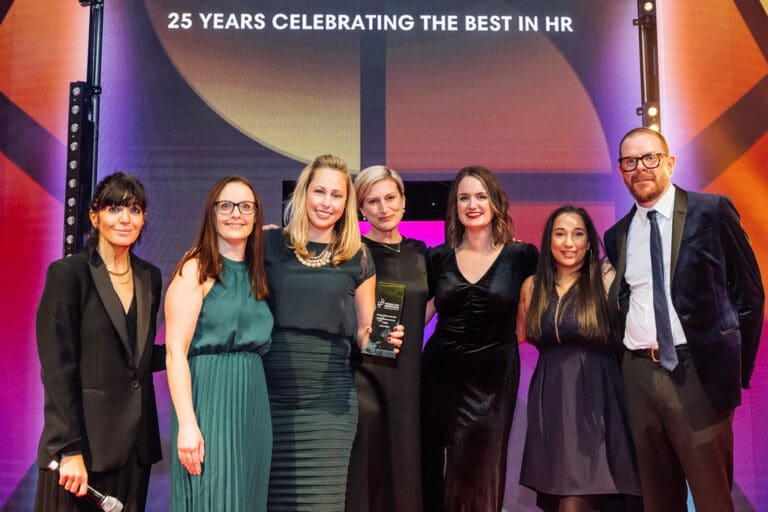Creating a candidate journey to support and empower.
The uncertain economic landscape continues to have a massive impact on opportunities for younger people in general, but most profoundly on those from a lower socio-economic background. On one hand, you have the worst cost of living crisis we have seen in decades; spiralling food and fuel costs, and huge economic uncertainty – simply figuring out how to get food on the table is a challenge many young people face. On the other hand, you have the lowest unemployment rate we have seen since 1974 and a record number of vacancies. Sure, it’s a candidate’s market, but how can you make sure you are enabling ALL candidates to make the most informed choices about their future, and that you’re not regarded as having overly complicated processes that automatically favours those from the ‘right’ backgrounds.
Cybl’s 2022 school leavers report shows that 52% of students want to work for their top choice employer because they are a well-known brand. Even with teachers as their primary source of careers information, students still say they identify their top employer through their own research. Knowing students are looking for information on which to base their career decisions gives employers the ability to ensure their messaging truly represents the opportunities they are offering, but for people from lower socio economic backgrounds, you’ll also need to be tackling pre-conceived notions of who they deem to be a good fit for your organisation.
There are more hurdles – perceived and practical – for people looking to enter the world of work who have not come from a high or middle income family. Bright Network’s ‘What Students Want 2022/23’ research states that 30% of their members believe their background has hindered them when applying to an opportunity, and this rises to 43% across their Black Heritage members. When you add to this that all students surveyed for this report state that ‘lack of network’ (23%) is seen as the biggest barrier to pursuing the career they hope for, and that 59% would like to see coaching during the application process, it becomes very clear that employers need to provide more reassurance and contact, if they want to truly democratise access to their early careers opportunities.
We all have a responsibility to the give the next generation a leg up, so here are some of the top things we have learnt as a business when it comes to levelling the playing field through your comms strategy:
Visibility: It’s so important to have strong links with schools, colleagues, and universities. Candidates need to ‘see’ you to even start to understand that there may be an opportunity there. This may be through the traditional on-campus events, or through virtual engagement events. By giving the option of both, you are able to reach the widest talent pool possible and not just engaging with those that are able to meet you face to face.
Remove minimum criteria: Many larger organisations are making the move to remove some (such as UCAS points) or all minimum criteria. Having a minimum UCAS or degree classification requirement immediately cuts huge numbers of potential candidates from your talent pools. By removing this criteria, those that may not have had the best experience in the education system can then access the same opportunities as everybody else. Build an assessment process that works to find potential, rather than polish, and a development programme that allows full development for all.
Authenticity: We hear all the time that authenticity is a major factor in selecting a potential employer; that’s because it’s absolutely true. Allow all candidates to see and feel what it is like to join your organisation. Let them know, through the use of your employees’ lived experiences, that there is a place for them in your organisation. Let them know they can build a successful career with you by showing that others have – and are – doing just this.
Transparent and clear processes: Many candidates may consider not applying for a role if it’s not immediately clear what they will have to do during the process. They may not have the benefit of being prepped through education or by working parents, so transparency of process and what will be expected of them is key. Your assessment process needs to be open, honest, and fair, and must demonstrate that everyone has an equal chance.
Candidate enablement tools/processes to build confidence: Some candidates from lower socio-economic backgrounds may not have had the same exposure to the working world that their peers may have had; be that no working parents, or lack of network to access work experience, amongst other things. Therefore, their knowledge of the working world may be small, and could end up manifesting as lack of confidence. Additional information, advice, and guidance – open to all, but targeting potential knowledge gaps – could make the world of difference for those lacking other means of support, especially if delivered in an accessible and non-exposing way.
At Meet & Engage we are always striving to develop tech solutions that help our clients to provide the most engaging and authentic candidate experiences, whilst meeting the diverse needs of their candidate pools. Our new Recruitment Process Nurture technology allows organisations to deliver highly tailored and useful information and support throughout the recruitment process, via a social-style content feed. The format makes information easy to digest, and candidates can dip in and out as suits them to read, watch, and absorb what they most need to feel confident, empowered, and informed. Ultimately, Recruitment Process Nurture helps keep candidates engaged in the process for longer, and provides what they need to perform at their best, whilst employers realise their commitment to levelling the playing field, and diversifying their hires.






